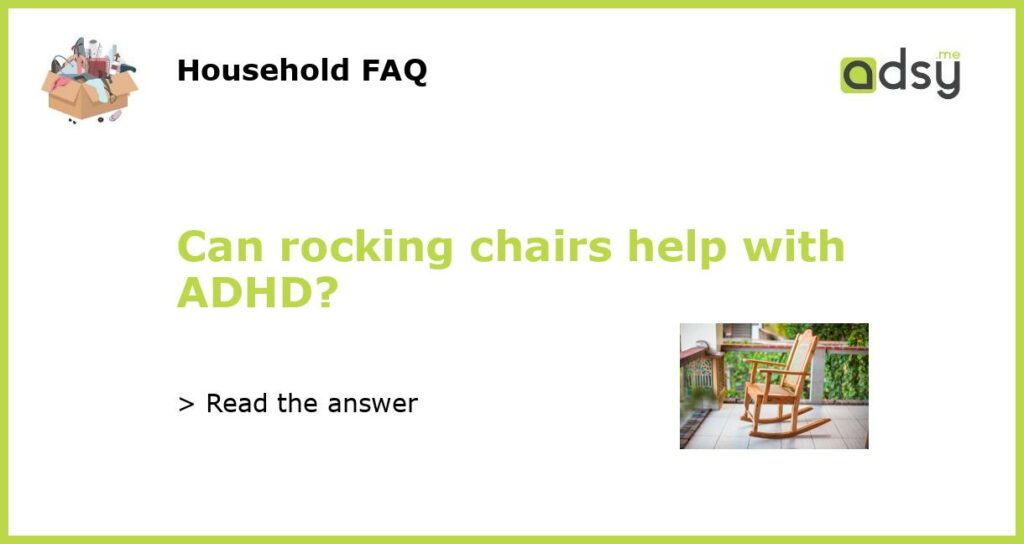Can rocking chairs help with ADHD?
ADHD, or attention deficit hyperactivity disorder, is a condition that affects both children and adults. It is characterized by symptoms such as difficulty focusing, impulsivity, and hyperactivity. Those who have ADHD may struggle with everyday tasks and have trouble paying attention in school or at work. While there are various treatment options for ADHD, including medication and therapy, some people have found that rocking chairs can help alleviate symptoms and improve focus. In this article, we will explore the potential benefits of rocking chairs for individuals with ADHD and examine the scientific evidence supporting this claim.
The calming effect of rocking chairs
One of the key reasons why rocking chairs may be beneficial for individuals with ADHD is their calming effect. The gentle rocking motion can have a soothing and relaxing effect on the mind and body, which may help those with ADHD to feel more grounded and centered. The rhythmic movement of the rocking chair can help regulate the nervous system, promoting a sense of calmness and reducing anxiety. This can be particularly beneficial for individuals with ADHD, who often experience heightened levels of stress and agitation.
Enhanced focus and attention
Another potential benefit of rocking chairs for individuals with ADHD is their ability to enhance focus and attention. Research has shown that the repetitive motion of rocking can stimulate the brain and improve cognitive function. The rhythmic movement of the rocking chair activates the vestibular system, which is responsible for balance and spatial awareness. This activation can help individuals with ADHD to better process sensory information and maintain their focus on tasks at hand.
Sensory integration benefits
Sensory integration refers to the brain’s ability to interpret and respond to sensory stimuli from the environment. Individuals with ADHD often struggle with sensory processing, which can lead to difficulties in regulating their behavior and emotions. Rocking chairs can provide sensory input that helps to organize and integrate sensory information, thus promoting sensory integration. By improving sensory processing, rocking chairs may help individuals with ADHD to better regulate their attention, emotions, and behavior.
Non-pharmacological intervention
One of the advantages of rocking chairs as a potential intervention for ADHD is that they are non-pharmacological. While medication can be effective in treating ADHD symptoms, some individuals prefer to explore non-medication options due to concerns about side effects or a desire for a more holistic approach. Rocking chairs offer a non-invasive and drug-free alternative that can be easily incorporated into daily routines. They can be used in combination with other treatments, such as therapy or medication, or as a standalone intervention.
The importance of individual differences
It is important to note that not all individuals with ADHD may benefit from rocking chairs. ADHD is a complex and varied condition, and what works for one person may not work for another. The effectiveness of rocking chairs as an intervention for ADHD may depend on individual differences such as sensory preferences and personal preferences. It is recommended that individuals with ADHD consult with healthcare professionals or occupational therapists to determine if rocking chairs are a suitable option for their specific needs.






